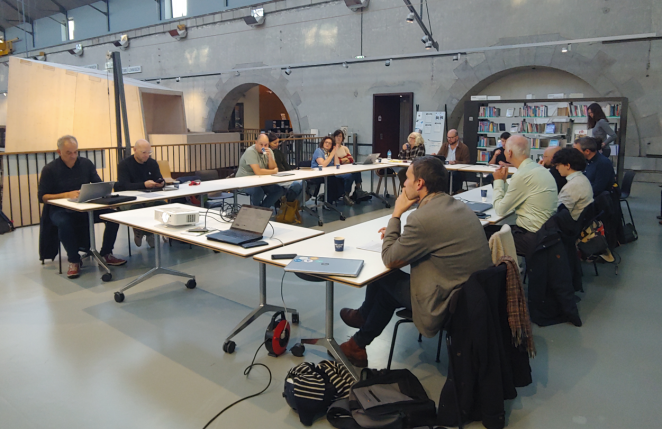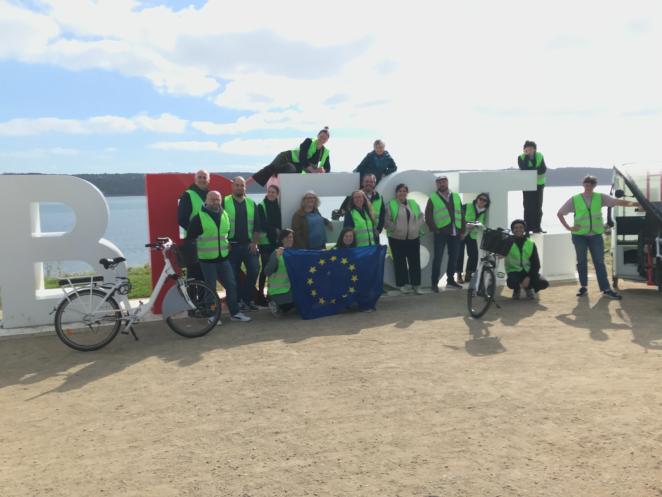From 7 to 9 October 2025, partners of the SMALL project gathered in Brest Métropole (France) for a two-day partner meeting dedicated to inclusive mobility, pilot learning, and future cooperation. Hosted by the pilot city of Brest Métropole, the event combined field visits, interactive discussions, and a local accessibility challenge. All was aimed at advancing cities towards more inclusive, people-centred mobility systems.

Day 1: Mapping accessibility and reflecting on pilot experiences
The meeting unofficially started on the evening of 7 October with the launch of the SMALL Challenge, inviting participants to use the Streetco app to report obstacles and accessible routes across the city throughout their stay in Brest. By contributing real-time data, partners helped identify barriers faced by people with reduced mobility (PRM), while testing an innovative digital tool that empowers citizens to improve accessibility in their communities.
On 8 October, the day started with a visit to Brest’s urban cable car, a symbol of the city’s commitment to multimodal and sustainable transport. With beautiful weather accompanying the activities, the formal partner meeting began at Les Capucins – Maison des projets. The first work session focused on the lessons learned from SMALL’s pilot activities, discussing what worked well, what challenges remain, and how to translate these experiences into practical recommendations for local authorities.
The afternoon continued at the Brest city council, where partners held a roundtable on replication and the 2026 vision. The purpose of this session was to transform the lessons learned from the pilot reports into a practical replication "menu", identifying transferable measures in each pilot. This menu will serve as input for the upcoming replication plan process, ensuring that project results can be scaled up and adapted across different local contexts.

Day 2: Communication, active mobility, and next steps
The second day (9 October) started with a cycling tour to experience Brest’s mobility infrastructure first-hand. The afternoon was then dedicated to Work Session 3. The objective of this session was to improve communication and dissemination outreach in the project’s final phase. This roundtable session aimed to identify communication challenges, highlight best practices, and align expectations for 2026. After a short introduction, partners reflected on three key themes: challenges, best practices and expectations.
Participants shared the main obstacles they faced in communicating project activities and results, such as limited resources, low visibility, or coordination between project and city-level teams. They then exchanged success stories and examples of what worked well, including effective campaigns, use of visuals and storytelling, and partnerships that boosted outreach. The session ended by defining a communication timeline set for SMALL's last year. Participants agreed on the importance of coordinating activities to maximise reach across social media and other channels.
A warm thank you to Brest Métropole for their excellent hosting, and to all partners for their active participation and contributions!
